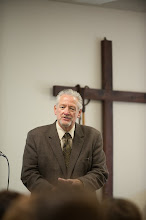Radical Christianity.
(Continued from the previous post, “Radical, Dude!”)
Since the first definition of “radical” offered by Merriam-Webster.com is “of, relating to, or proceeding from a root,” real radical Christianity must be that which reflects the biblical roots of Christianity. Biblical Christianity is rooted in the person and work of the Lord Jesus Christ.
The relevant roots of Christianity have nothing to do with the culture of the First Century. We’ve all had fun with the idea that being like Jesus involves wearing sandals and robes . . . I’m wearing sandals right now, but I would like to think that I am like Jesus in more meaningful ways! Many beatniks and hippies of the past were very much like Jesus in that respect! “What would Jesus do?” is an appropriate question . . . “What would Jesus eat?” and questions like it are interesting, but irrelevant when it comes to being a radical Christian.
Being like Jesus is the fundamental issue in radical Christianity. Everyone who claims to be a Christian should have a heart to be like Him in every way possible. Being like Jesus naturally leads us to “do like Jesus.” Christ-like character produces Christ-like conduct. But, those of who have tried to be like Jesus, in character, conduct, or both, know how frustrating and futile such efforts can be. How do we become more like Jesus?
Let’s back up a bit . . . there is a sense in which the roots of Christianity do not take us back to Jesus Christ himself. We must acknowledge that Christianity is rooted in another reality. Acts 11:26 tells us that the first people called “Christians” were disciples. Prior to that time, which was 10 to 12 years after the birth of the church in Acts 2, no one was called a Christian. Most considered themselves Jews who believed in Jesus as Messiah. They were called disciples, believers, or brothers and sisters. As a whole or in groups, they were called the church. Then, someone in Antioch described a disciple of Jesus as a Christian. That term seems to have stuck through the years, but there’s only one other time in Acts that the term is used. So, a quest for radical Christianity forces us to recognize the priority and precedence of discipleship.
Some Christians have the erroneous idea that a being a disciple is in some way distinct from being a Christian; the assumption is that a disciples is someone who has answered a call “above and beyond the call of duty.” Some believe that Jesus only had twelve disciples, and therefore, discipleship must be an exclusive relationship reserved for a “super” Christian.
Considering the sad state of Christianity in much of the world today, a true disciple might be something super. Polls and surveys have shown that the moral thought and behavior of those who call themselves Christians in the United States is not much better or higher than the rest of society! But a Christian should be a disciple . . . and disciples should be dramatically different morally, ethically, and spiritually in comparison to the average unbeliever!
Therefore, a “radical” Christian is one who has embraced the call to be a disciple, for a disciple is one who has entered a learning relationship with a “master” in order to become like his or her “master!” There’s so much to say about discipleship . . . but first, I want to respond to the other question raised in my last blog . . . What is the really “radical” church?
Sunday, September 5, 2010
Subscribe to:
Post Comments (Atom)

No comments:
Post a Comment